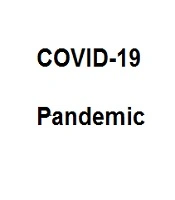Dear Editor,
In Iran, the hard work percentage for psychiatry staff is 100% that equals hard work percentage in critical care units such as intensive care unit (ICU) and cardiac care unit (CCU). This percentage of hard work is due to the special conditions of patients with mental health disorders and specific work of the mental care team. Psychiatric centers need special attention in the COVID-19 pandemic. Patients with mental health disorders have an ongoing challenge of hygiene observance that is now doubled with the prevalence of COVID-19. This challenge is significant in a variety of outpatients, inpatients, acute, chronic, psychotic, and neurotic patients with mental disorders. The process, form, and content of thought, mood, affect, perception, judgment, insight, and attention are changed in their mental status examination. Psychiatrists, caregivers, patients with mental disorders, and their families are at high risk for infection. They can also be carriers of the asymptomatic disease. Unfortunately, some cases of COVID-19 have been observed since the outbreak of COVID-19 in Iran. Coronavirus may be transmitted by an asymptomatic carrier. The incubation period for this disease is long and has been reported in the range of 0 to 24 days (1).
In a very short period of time, healthcare systems and the community have been greatly affected by this emerging virus. Prevention of transmission and deceleration of new infections are the main goals (2). In Iran, giving information, education and prevention programs, psychiatric counseling, and follow-up care, treatment, or discharge programs for non-emergency or outpatients with mental disorders were done by a distance such as other diseases. These services are provided through mobile phones, mass media, virtual spaces, and social networks such as WhatsApp and Telegram. Public education is provided by experts and professors in various health fields, and specialized training was done by psychiatrists, psychologists, counselors, and psychiatric nurses. This will try to minimize the levels of communication and social contacts. In China, mental health services were provided online during the COVID-19 outbreak (3). But the major challenge for hospitalized patients remains. Some of the psychiatric patients have no insight into their disorders. They live in their fantasy world with kinds of illusions, delusions, and hallucinations. Some of them are unaware of the prevalence, transmission, prevention, or control of COVID-19. Others are indifferent to their health status because of poor mental conditions, and eventually, some intend to harm themselves or others. Therefore, special attention should be paid to patients admitted to psychiatric centers to support them, their families, and health care personnel.

.png)